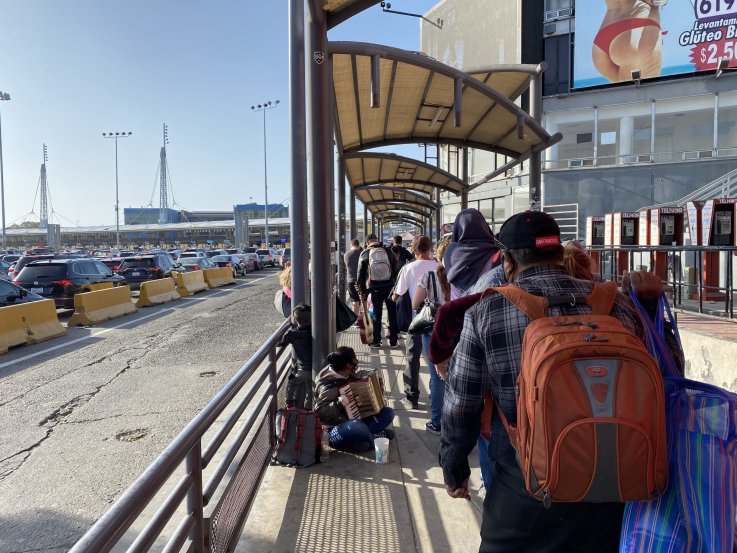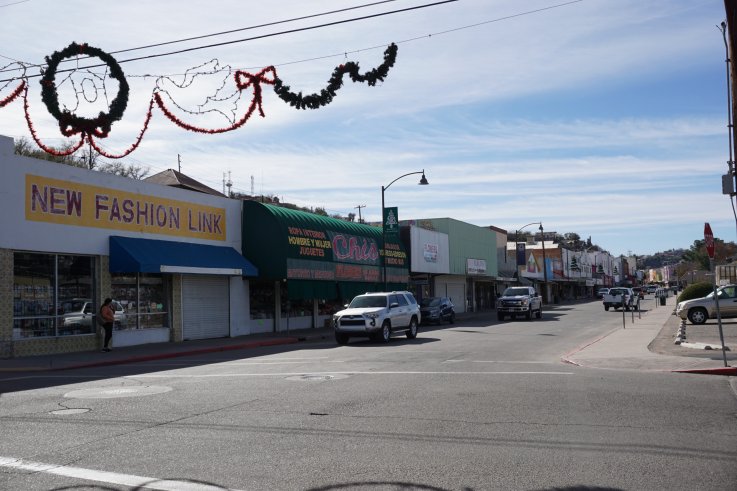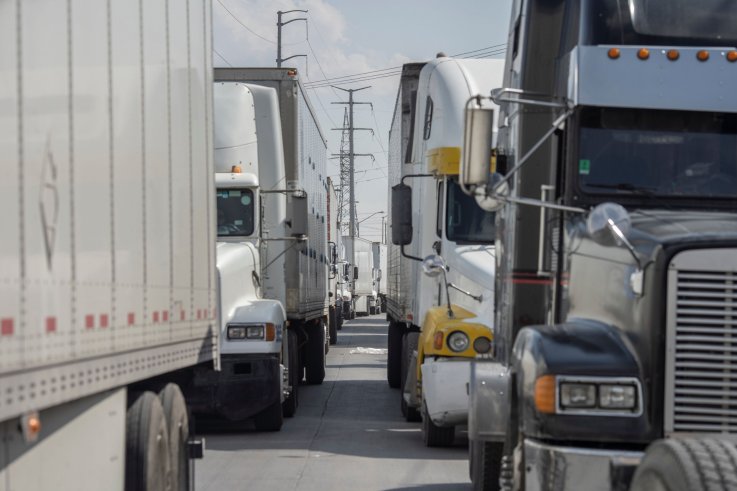Border Towns Suffer as Mexico Extends Restrictions on Travel to U.S.
Restrictions on non-essential travel from Mexico to the U.S. will remain for at least another month, Mexico's Secretary of Foreign Affairs Marcelo Ebrard said during a Tuesday news conference. This comes as advocates and local officials called on U.S. Homeland Security Secretary Alejandro Mayorkas to re-open ports of entry to non-essential travelers.
The Mexican crossing restrictions, which were put in place on March 21 last year, as the pandemic was peaking, seeks to curb travel for "tourism, gambling and recreational activities" for people crossing at the border by car or on foot, but do not apply to air travel.

American border towns are among the poorest in the nation, with more than 23% of residents living in poverty, according to a report titled "Border Colonias" by the Housing Assistance Council. Nationwide, just 10% of Americans live below the poverty line.
For border areas, sales tax generated from the purchases of Mexican travelers stands as a major revenue generator. In Texas alone, counties along the border have lost nearly $4.9 billion in economic activity between March and November of 2020 due to COVID-19 travel restrictions.
"The travel ban has really shut down business from these day-visitors from Mexico, so I think it has been devastating for small businesses." Erik Lee, executive director of the North American Research Partnership at the Wilson Center, told Newsweek. "This travel ban will continue to impact U.S. border communities and their local economies in a negative fashion."
Lee said the border travel restriction's extension, aimed to allow Mexico to catch up on its vaccination rate, will continue to harm communities that have historically missed out on the value of the goods which pass through their streets.
Mexican towns like Mexicali, Puerto Palomas, and Nogales, Sonora serve as economic anchors for their American respective counterparts of Calexico, Columbus, and Nogales, Arizona. While the Mexican government continues to allow U.S. travelers to enter the country essentially unrestricted, Lee said, the American port of entries remain closed to Mexican tourists and shoppers.
Nogales, a town where Mexican shoppers generate more than 60% of sales tax revenue, has felt the impact of the border's closure.

"A lot of the small locally owned businesses rely on those Mexican visitors," Genesis Lara, a reporter at the Nogales International newspaper, told Newsweek. "Since the border restrictions aren't allowing them through, the stores just don't have enough customers, and a lot of them have closed down."
Along with a number of clothing stores in the downtown area, companies that run shuttles to Tucson and Phoenix have suffered from the closure, Lara said. She reported that efforts to limit travel from residents on both sides have not only hurt brick and mortar businesses, but also owners of parking lots.
Her colleague Nick Phillips reported that sales at some local clothing stores dropped to about 15% of their normal level during the generally reliable holiday season, and that some restaurants experienced a 50% drop in sales.
"Bigger chain stores like Marshalls, Ross, and JC Penney haven't been hit as hard just because U.S. citizens also shopped there," Lara said. "But the ones in downtown Nogales— the small locally owned stores and businesses— really relied on Mexican tourists who were looking for less expensive clothing and products."

As the city continues to struggle, The Greater Nogales Port Authority, whose website declares that its mission is to "improve international trade and spur tourism and community development," called on the Biden administration to lift the travel ban.
They join a coalition of U.S. Rep. Henry Cuellar (D-Texas), McAllen Texas Mayor Jim Darling (D-Texas), and a number of activists who have all made similar calls.
Lee said the communities are determined to make it through.
"I think the federal government thinks that this is the price that we need to pay to keep us citizens healthy," he told Newsweek. "Another month will be bad, but I don't think it will break these communities—they're still there, and their local economies are still functioning, although heavily affected."

